Best 10 Countries to Learn Quran and Arabic

Learning Arabic is always linked to learning the Holy Quran, as the Quran was revealed in Arabic, and in order to be able to read it correctly, you must master the Arabic language. In addition to the great value of the Arabic language as the language of the Quran, it is also one of the […]
Islamic Games for Adults
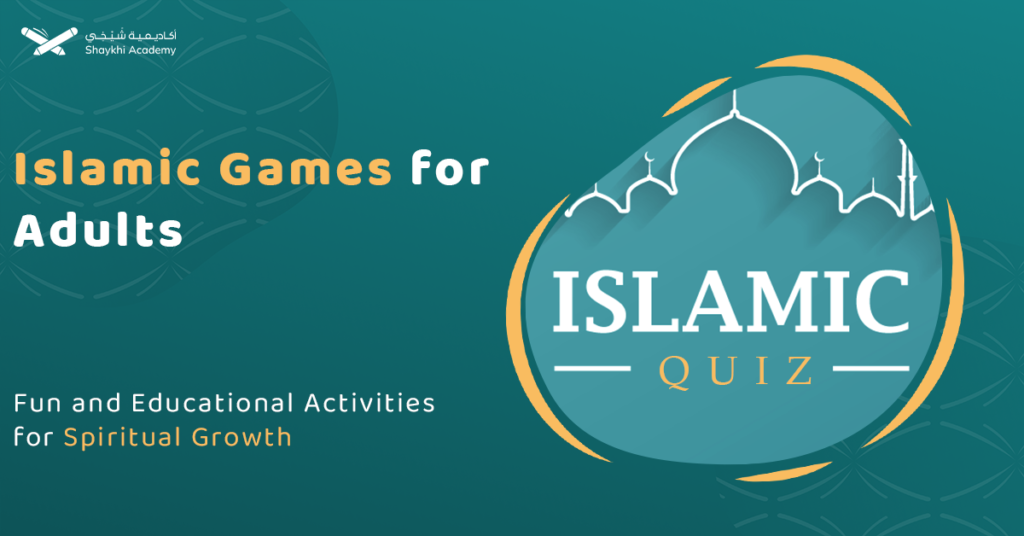
Games are one of the most important tools for charging concentration and play an important role in education or entertainment. Whatever the role in which they are used, they are the most prominent tool for attracting a person’s attention and protecting him from boredom that may come from life pressures or long hours of studying. […]
Can You Recite Ayatul Kursi in Salah?
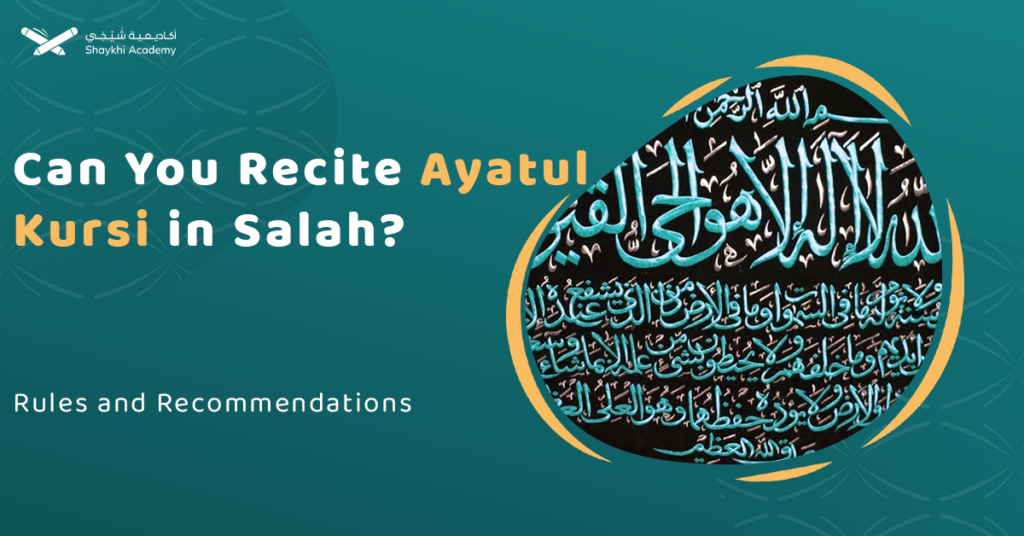
Many of us wonder what is the sufficient amount that should be recited after Surah Al-Fatihah in prayer? Is it a complete Surah or is it sufficient to recite a number of verses or is one verse sufficient for that? In this article we will answer this question. Can You Recite Ayatul kursi in Salah? […]
Arabic Books for Kids

Have you decided to increase your kids’ association with the Arabic language and make him more skilled in it? Congratulations! You made the right decision. The Arabic language is important for every Muslim and seeking to teach it to your child from an early age and linking him through it to the Arab and Islamic […]
Learn Quran by Heart – Best Ways And Benefits

Learning Quran by heart is a goal that every Muslim seeks, as it is a continuous and uninterrupted connection with God and the noble words of Allah all the time and without the need for a place or tools. Although it may seem difficult, especially for beginners, with diligence and focus, progress in it is […]
Arabic Broken Plurals
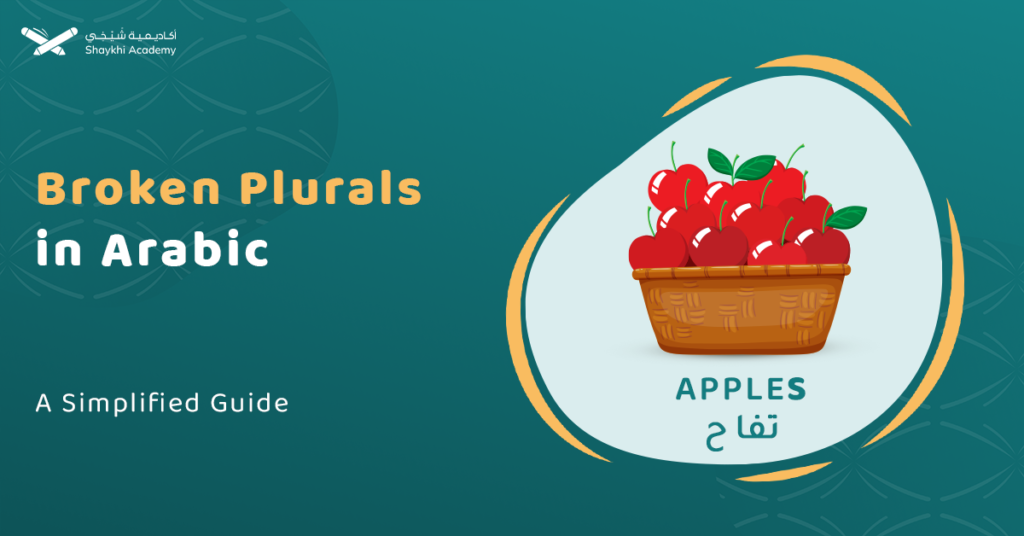
The broken plural is one of the basic rules of the Arabic language. In general, the plural in Arabic is one of the most important rules that we must learn if we want to master the Arabic language and pronounce it. The plural in the Arabic language is divided into three types: the sound masculine […]
Plural in Arabic – Full Guide To Arabic Plurals
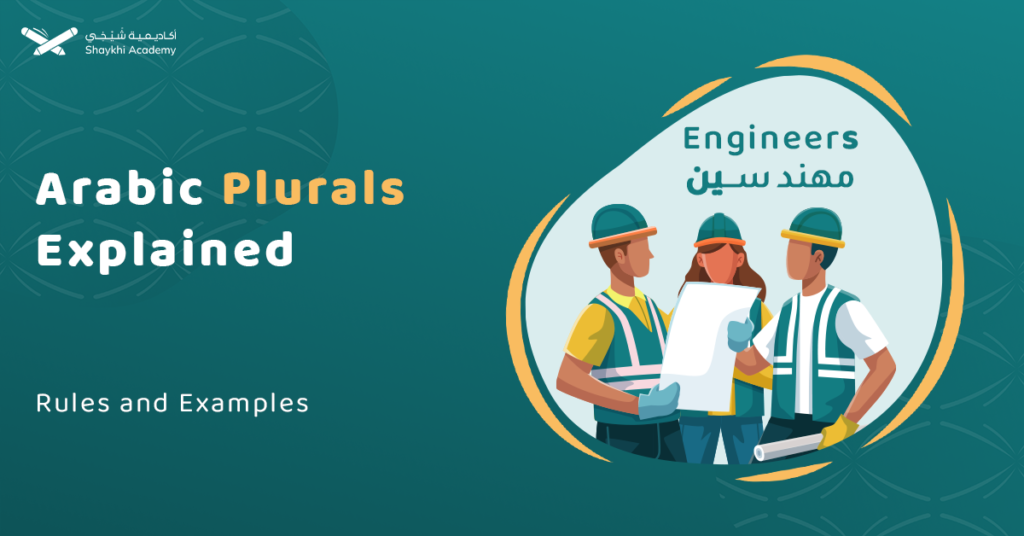
Arabic plurals are categorized into three types: sound masculine, sound feminine, and broken plurals. Sound plurals add specific endings like (ون), (ين), or (ــات) to masculine or feminine nouns without altering their base form. In contrast, broken plurals change the word’s internal structure, such as “رجل” becoming “رجال” or “كتاب” transforming into “كتب.” These forms […]
Hamzatul Wasl Meaning, Rules, Examples With Worksheets
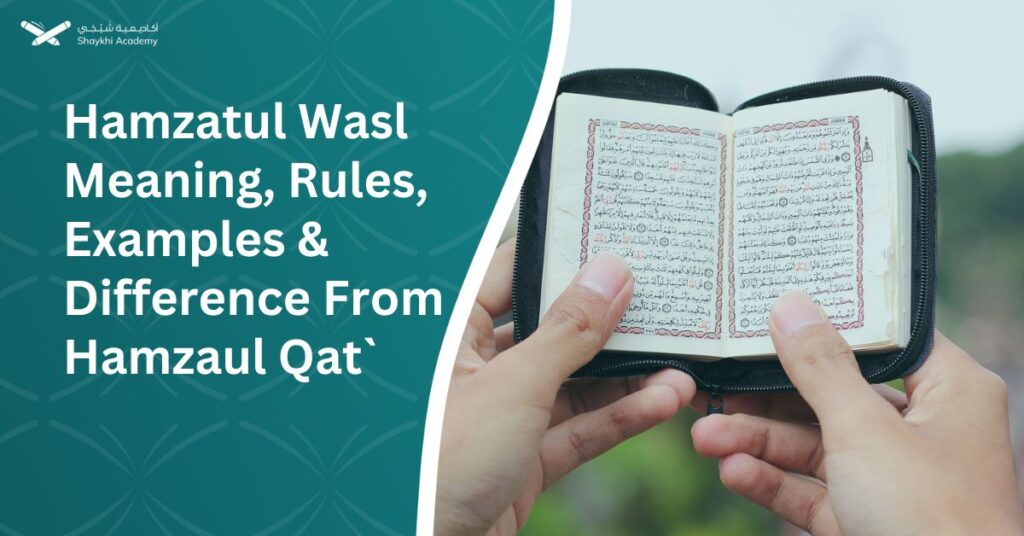
Hamzatul Wasl is among the basic concepts that the reader must know and understand in order to adjust the correct recitation of the Holy Quran, so what is the meaning and rules of them? Have you ever come across an Arabic word that starts with an alif but isn’t pronounced with the usual “a” sound? […]
Throat letters In Tajweed And Arabic With Examples – Al-Halq letters
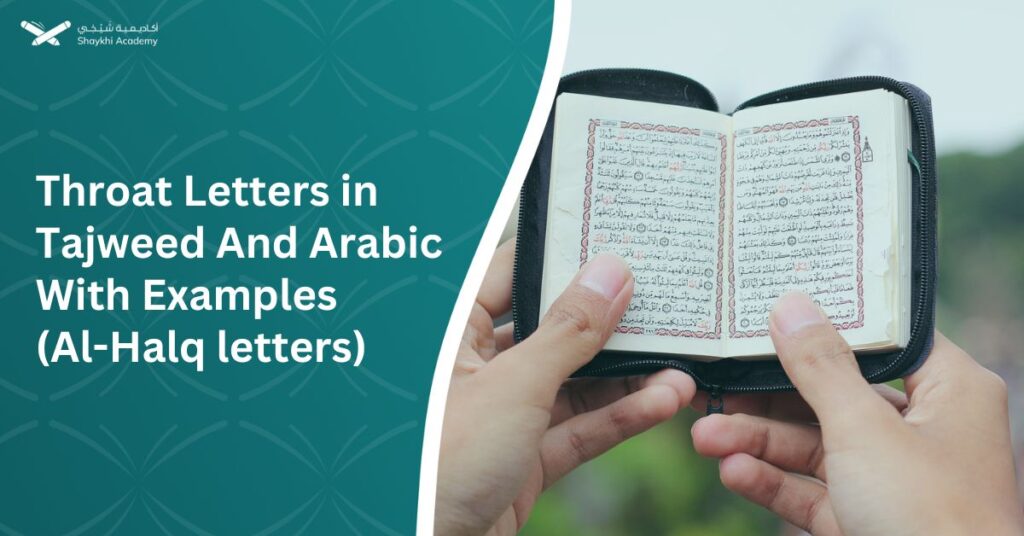
Throat letters, or Al-Huruf Al-Halqiyah (الحروف الحلقية), are the six Arabic letters (ع, هـ, خ, ح, غ, أ) that are pronounced from deep within the throat. These letters are crucial in Tajweed for the correct recitation of the Quran, as each letter has a unique articulation point within the throat, creating distinct sounds that contribute […]
What Is Madd Badal? Types, Cases, Conditions And Examples
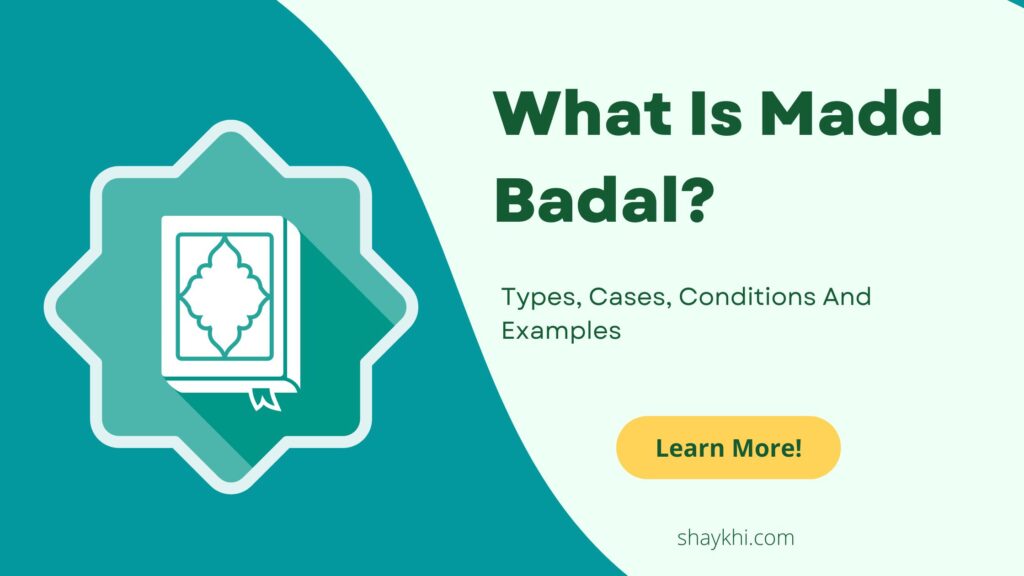
Madd Badal is a Tajweed rule where elongation occurs when a hamzah (glottal stop) precedes a Madd letter (alif, waw, or ya), typically extended by two counts. It includes types like fully pronounced hamza and facilitated hamza. Applied when a hamzah is followed by a Madd letter, Madd Badal is learned through study, listening to […]
Rules of Noon and Meem Mushaddad With Practical Examples
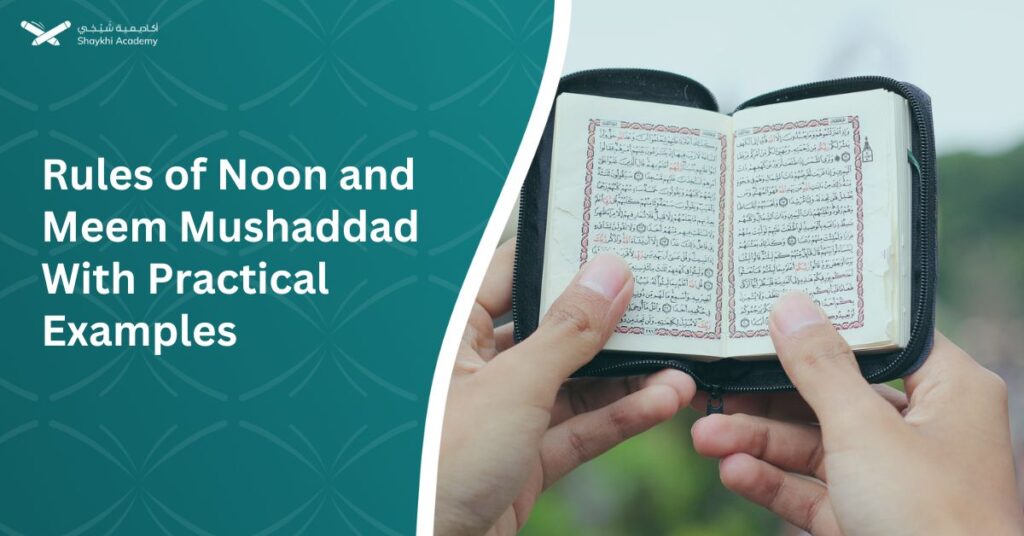
In Tajweed, Noon and Meem Mushaddad are critical rules marked by a shaddah (ّ), which indicates the doubling of these letters with a nasal sound (ghunnah) lasting two counts. For Noon Mushaddad, such as in “إنّ” (Inna), and Meem Mushaddad, like in “أمّ” (Umma), the rule involves merging the silent letter into the moving letter, […]
Noon Sakinah Rules: Learn The Rules Of Noon Sakinah And Tanween With Examples
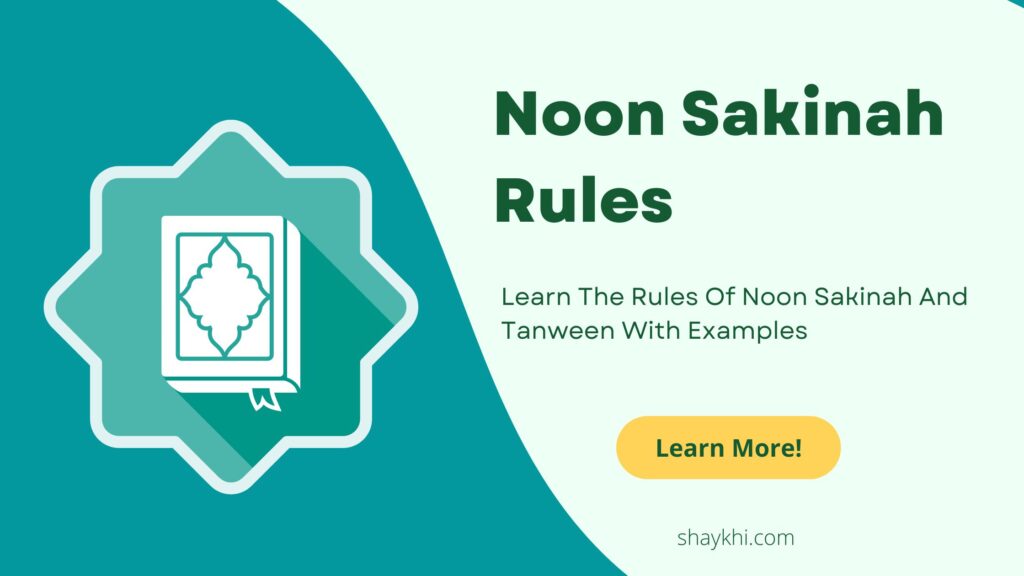
Noon Sakinah and Tanween have four main rules: Izhar, Iqlab, Idgham, and Ikhfa. Saakin, indicating no vowel sound, is crucial for proper pronunciation. Noon Sakinah is a static “noon” with sukoon, while Tanween, a double vocalization, mirrors its sound. Mastering these rules guarantees accurate and meaningful recitation. Noun Sakinah and Tanween are among the most […]
